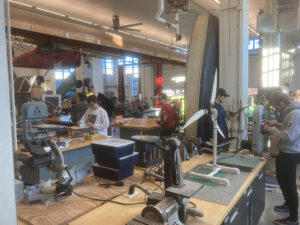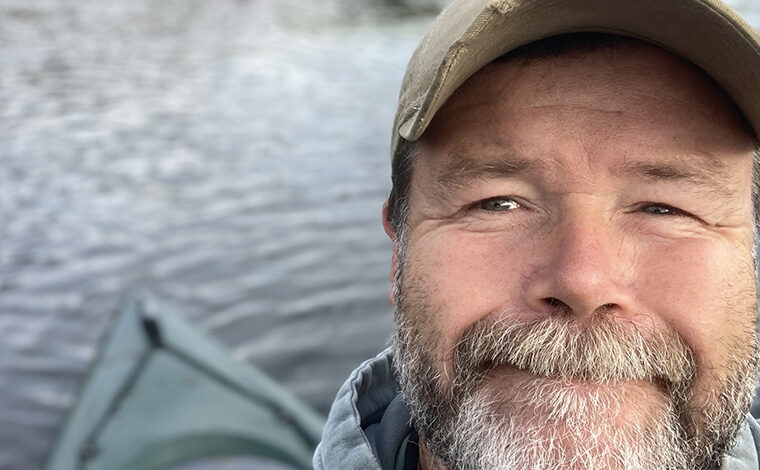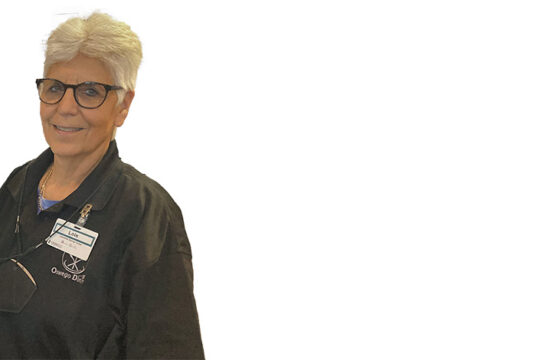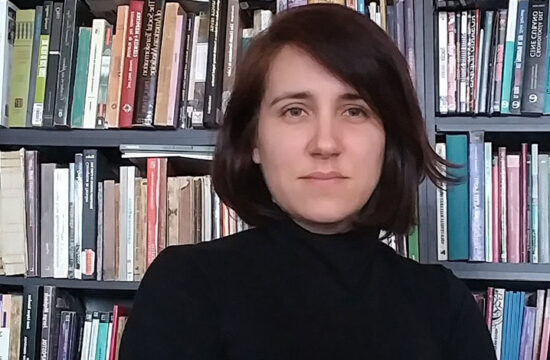Career of new department of technology professor is in high gear
By Stefan Yablonski
Ronald Alexander, assistant professor in the department of technology, is revving up his career at SUNY Oswego.

“I graduated from SUNY Morrisville with an associate’s degree in automotive technology. I basically spent my entire career working in the automotive industry,” he said.
He got a job with Chrysler Corporation as a training instructor (for 30 years) “and I worked part-time while I received my bachelor’s degree in education and eventually my master’s degree in education,” he said. “Taught for a short time at BOCES in Auburn, motorcycle repair and then I transferred to SUNY Morrisville, teaching in the automotive technology department. I did that for about 16 years.”
The road to Oswego
“I got the opportunity to teach at the BOCES in Auburn. It was a small engines program. I changed the name of the program, it was unpopular — kids in high school thought it was about fixing lawn mowers. I changed the name to Power Sports Technology. Brought in a couple snowmobiles and an ATV, a jet ski and all of a sudden my classroom was full,” he recalled. “So I kind of turned the program around in Auburn. It’s a very successful program now and one of my students is running it now.”
Morrisville reached out to him and asked if he would be interested in teaching there.
“I took that job and never really thought about the mileage factor. For 16 years it was in a car three to four hour drive — if the weather was good — every day,” he said.
His family settled in Fair Haven.
“So, the drive from Fair Haven to Morrisville was a little taxing over the past 16 years, he said with a laugh.
“I got tired of the long drive. I reached out to Mr. Bush. My daughter and son graduated a couple years ago from the tech ed program, so I got to know the department well. My daughter took it as a minor; she really enjoyed the tech classes. I got to know the professors and their philosophy and I really liked the fact my kids were coming home and their hands were dirty — they were doing things in the lab, building things,” he explained.
“I said, ‘Mr. Bush if you ever have a position that’s open and you think I would be qualified for, let me know.’ He contacted me a while later …. Transportation …. Well I’ve done that for30 years, I’m qualified. So it’s worked out well. I’ve had a great first semester. I am looking forward to a career here.”
His son, a 2020 tech education grad teaches at Penn Yan Middle School; his daughter, a studio art and tech minor, is a 2018 grad now working at Red Creek Elementary and War Horse Production — a national company that does medieval jousting at the Ren Fest in Sterling.
“I’m in Park Hall — the lab with the airplane (a Cessna) tied to the ceiling,” he said.
Alexander currently teaches introduction to materials technologies, transportation systems and energy and power technology
“The transportation class is kind of like cars, trains and airplanes — all means of transportation. It’s teaching the technology, but also how do you teach the technology (since many students are in education tracks),” he explained. “It’s kind of cool for me since I’ve been teaching for 30 years to pass on some of the experience I have had over the years.”
The energy class is anything that has to do with energy — storage, heating sources, renewable energy, from wind turbines to clean hydrogen, stuff like that, he added.
“The third class is basically raw materials and how you use them in manufacturing. It’s a neat class; a lot of hands-on lab work. It’s a fun class,” he said.
Summer business
“I have a business I run in the summer time, Fair Haven Kayak, it’s a rental company- we’ve done it like four years now. We do short trips — take people down Sterling Creek, rent kayaks to people camping. It’s a family business; my kids help me run it,” he said.
They purchased a cottage in 2018 in Fair Haven, on the bay. That sparked his interest in the kayak business.
“It’s taken off from there. I’m one of the few guys that actually delivers,” he said. “If you need a kayak or standup paddle board, I’ll bring them to you.”
He also runs Automotive Educational Services.
“I do contracted training for independent shops, local NAPA stores and recently I’ve been doing a lot of training for Stellantis, basically Chrysler’s new company,” he said.
(Stellantis name origin is from Latin with a definition listed as “to brighten with stars.” The motivation behind the merger was clear as both companies wanted to generate a larger fan base, build greater EV motors and technology.)
“I work out of the Rochester training center, which is where I use to work years and years ago — been doing that on and off for like 30 years now. I started teaching for Chrysler in ’93 and did that until 2003. Now, I teach for them part-time basically in the same location. So, between those two businesses we’ve been very busy,” he said.
Back in the day when you popped open the hood, you could identify most things. Today’s cars are more challenging, he noted.
“Now, the best part for me is the shorter commute,” he laughed. “But I will tell you, we have a very tight knit group of faculty in the technology education department. That was my biggest fear starting a new job. We have a group of people that work very, very well together. I can’t say enough about that. We have some seasoned professionals, nothing but open door policy — anything thing I need they’ve helped me.”
“I find myself at school more and at school longer,” he continued. “It’s closer so I can get there and stay there longer. It also allows me to engage more with students which is great. I am also the Auto Club adviser, work with the students a couple hours each week. I feel more a part of the college community.”
An eye to the future
“Change will be the electricfation of our passenger cars. It’s not a matter of if it’s going to happen — it’s when it is going to happen,” he said. “All the manufacturers are releasing products now, better products, longer range charging times, more reasonably priced vehicles.”
People who traditionally build components for internal combustion are starting to see a definite slowdown in production and research and development on future engine technologies because they are switching to electric, he added.
“The cars are so much simpler — you’re eliminating the transmission the internal combustion fuel storage, the exhaust — all that stuff’s going away. You’ll have a much simpler vehicle,” he said. “Definitely a transition; I think from gas to hybrid, from hybrid to full electric.”
“The batteries in your cell phones have significantly improved over the years — car batteries will also,” he said. “The technology continues to improve every day. We’ll see a decrease in size.”












